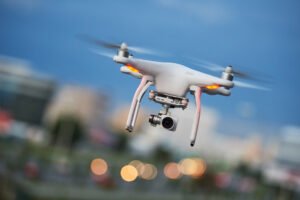
Technology can make for strange headlines. You may have seen the recent video of a Connecticut woman attacking a young man on the beach for operating a remote-operated video-camera drone near her. Even just a few years ago, the story might have seemed like science fiction. But small, consumer drones are a fact of life today, and the issue of how they should be regulated — or if they should even been allowed — has emerged as a hot topic nationwide. It’s easy to understand why. Personal privacy is important, and drones pose the potential for invasions of privacy. But at the same time, drones can be used for lawful, even important purposes. Balancing the two can be difficult, especially as we continue to see new applications of drone technology in everyday life.
Florida Drone Law Continues to Evolve
As commercial law attorneys in Orlando, the evolution of Florida drone law is fascinating to observe (as is often the case with cutting-edge scientific developments). In 2013, Gov. Rick Scott signed a ban on police drones in an effort to protect citizens from “unwarranted surveillance.” Nevertheless, Florida drone law still allows for certain emergency exceptions. But what about private, consumer-grade drones, like the one operated by the young beachgoer in the now-famous viral video? Policymakers continue to debate the best approach, even as companies like Amazon say they plan to roll out a fleet of drones for door-to-door package delivery at some point in the future.
One important consideration is potential interference with commercial aviation. Take, for example, the incident in Tallahassee earlier this year. A drone came dangerously close to colliding with a US Airways jet, awakening regulators to the potential peril of drone use near airports or in commercial airspace. Investigators determined the Tallahassee drone wasn’t associated with any military or police operations. So that leaves the rest of us civilians who fly on airplanes wondering: should we be worried about recreational drones crashing into our planes? Have you seen this footage of a drone flying through 4th of July fireworks? It’s easy to see both the fun and potential harm of this hobby here.
As commercial law attorneys in Orlando, the evolution of Florida drone law is fascinating to observe.
To consult with an experienced business law lawyer today
855-780-9986
The Debate Drones On
As drone production becomes less expensive and consumer models become more readily available, experts warn that we could soon see a sudden influx of recreational drone activity across the nation — an influx we might not be prepared for. But the question of how best to regulate them remains difficult to answer.
NOTICE: The article above is not intended to serve as legal advice, and you should not rely on it as such. It is offered only as general information. You should consult with a duly licensed attorney regarding your Florida legal matter, as every situation is unique. Please know that merely reading this article, subscribing to this blog, or otherwise contacting Bogin, Munns & Munns does not establish an attorney-client relationship with our firm. Should you seek legal representation from Bogin, Munns & Munns, any such representation must first be agreed to by the firm and confirmed in a written agreement.
Call or Submit Our Consultation Request Form Today





